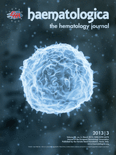
HAEMATOLOGICA
Scope & Guideline
Transforming Hematology Through Knowledge and Integrity
Introduction
Aims and Scopes
- Clinical and Translational Research:
HAEMATOLOGICA emphasizes clinical trials and translational studies that bridge laboratory findings with patient care, aiming to improve treatment protocols and patient outcomes in hematological malignancies. - Molecular and Genomic Insights:
The journal explores the genomic landscapes and molecular mechanisms underlying hematological diseases, providing insights into targeted therapies and their efficacy. - Innovative Treatment Modalities:
Research on new treatment strategies, including immunotherapy, CAR T-cell therapy, and novel pharmaceuticals, is a core focus, reflecting the journal's commitment to advancing therapeutic options for hematological patients. - Patient-Centric Studies:
The journal includes studies that assess quality of life and treatment adherence among patients, ensuring that research is aligned with the needs and experiences of individuals affected by blood disorders. - Epidemiological and Public Health Perspectives:
HAEMATOLOGICA also addresses the epidemiology of hematological diseases, including the impact of socio-economic factors and healthcare access on disease outcomes.
Trending and Emerging
- Immunotherapy and Targeted Therapies:
There is a significant increase in studies focusing on immunotherapy, including CAR T-cell therapy and bispecific antibodies, as well as targeted therapies that aim to exploit specific genetic alterations in hematological malignancies. - Minimal Residual Disease Monitoring:
The importance of monitoring minimal residual disease (MRD) has gained prominence, with research focusing on its prognostic implications and its role in treatment decisions. - Socioeconomic Factors and Health Disparities:
Emerging research on how socioeconomic factors impact treatment outcomes and access to care in hematological malignancies is becoming more prevalent, highlighting the journal's commitment to patient-centered research. - Microbiome and Hematology:
Studies exploring the relationship between the microbiome and hematological diseases have emerged, reflecting a growing interest in how gut health may influence treatment responses and disease progression. - Long-Term Outcomes and Survivorship:
Research focusing on the long-term health outcomes and quality of life of hematology patients, particularly survivors of hematological malignancies, is increasingly featured, indicating a shift towards holistic patient care.
Declining or Waning
- Traditional Chemotherapy Studies:
There has been a noticeable decrease in studies focusing solely on traditional chemotherapy regimens, as the field shifts towards exploring novel therapies and combinations that enhance efficacy and minimize toxicity. - Basic Research Without Clinical Application:
Studies that do not translate into clinical applications or lack direct relevance to patient outcomes are less frequently published, reflecting a trend towards more impactful research. - Single-Agent Drug Studies:
Research centered on single-agent therapies has waned, likely due to the increasing complexity of treatment regimens that involve combination therapies and personalized medicine. - Elderly Patient Studies:
Research specifically targeting elderly populations in hematology appears to be less prevalent, suggesting a potential gap in understanding the unique challenges faced by this demographic.
Similar Journals
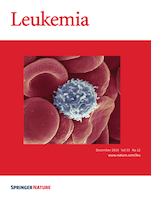
LEUKEMIA
Championing Excellence in Cancer ResearchLEUKEMIA, published by SpringerNature, is a premier journal in the field of hematology and oncology, with ISSN 0887-6924 and E-ISSN 1476-5551. Established in 1987, this esteemed publication serves as a critical platform for disseminating groundbreaking research and comprehensive reviews on the pathophysiology, diagnosis, and treatment of leukemia and related hematological disorders. With a distinguished impact, it holds a top-tier status in several categories, including Q1 rankings in Anesthesiology and Pain Medicine, Cancer Research, Hematology, and Oncology for 2023. The journal is globally recognized for its rigorous peer-review process and is highly regarded among academia, evidenced by its impressive Scopus rankings—7th in Hematology and 24th in Oncology. Researchers, clinicians, and students alike will benefit from the rich content that this journal offers, making it an invaluable resource in the fight against leukemia. The main objective of LEUKEMIA is to advance knowledge and encourage further innovations within the field, ensuring that vital insights reach practitioners and researchers around the world.

ACTA HAEMATOLOGICA
Elevating Research in Hematology and BeyondACTA HAEMATOLOGICA, published by KARGER, is a prestigious journal established in 1948, dedicated to the field of hematology and related medical sciences. With an ISSN of 0001-5792 and an E-ISSN of 1421-9662, this journal stands out with a Q2 ranking in both Hematology and Miscellaneous Medicine categories as of 2023. Researchers and professionals can benefit from its high-quality peer-reviewed articles, contributing to a more profound understanding and advancement of hematological practices. Although it does not offer open access options, ACTA HAEMATOLOGICA remains an essential resource for researchers in Switzerland and worldwide, providing critical insights and fostering discourse among academic and clinical communities. The journal's address is located in the heart of Basel, Switzerland, ensuring its robust connection to European medical research networks. With a firm commitment to excellence, this publication plays a vital role in disseminating knowledge, guiding future innovations in the field.
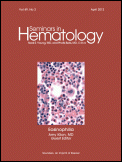
SEMINARS IN HEMATOLOGY
Exploring the Frontiers of Blood Disorders and Treatments.SEMINARS IN HEMATOLOGY, published by W B SAUNDERS CO-ELSEVIER INC, stands as a premier academic journal dedicated to the field of hematology. Established in 1964, this journal has built a robust reputation over its nearly six-decade history, now recognized as a Q1 journal in Hematology with an impressive impact factor reflective of its high relevance and citation frequency within the academic community. Residents and scholars can access meticulously curated articles that address innovative research, clinical practices, and advancements in the understanding of blood disorders and treatment methodologies. The journal, ranked #36 out of 137 in the Scopus Medicine Hematology category, showcases cutting-edge research, ensuring its contributions are crucial for professionals, researchers, and students striving to stay at the forefront of the hematology field. Although not an Open Access journal, SEMINARS IN HEMATOLOGY continues to unite a global audience dedicated to advancing the science and clinical practices in hematology.
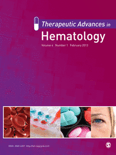
Therapeutic Advances in Hematology
Advancing hematology through innovative research.Therapeutic Advances in Hematology is a prestigious, peer-reviewed journal dedicated to advancing the field of hematology through innovative research and clinical studies. Published by SAGE Publications Ltd, this journal has become a vital resource for hematology professionals and researchers since its inception in 2010. With its impactful Q1 ranking in Hematology and a Scopus rank of 62 out of 137, it firmly establishes itself as a leader in disseminating significant findings and therapeutic approaches. The journal has been committed to open access since 2019, ensuring that its cutting-edge research is readily available to the global scientific community. Covering a broad scope of topics within hematology, Therapeutic Advances in Hematology is an essential platform for those seeking to enhance their understanding and implementation of therapeutic practices in hematological conditions. The journal embraces submissions from both clinical and laboratory perspectives, fostering collaboration and dialogue among researchers, clinicians, and students alike.
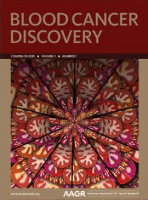
Blood Cancer Discovery
Illuminating the Path to Understanding Blood MalignanciesBlood Cancer Discovery is a premier academic journal published by the American Association for Cancer Research, dedicated to advancing the understanding of hematologic malignancies through cutting-edge research in the fields of oncology, biochemistry, and molecular biology. With an impressive impact factor and recognition as a Q1 journal across multiple disciplines, including cancer research and hematology, Blood Cancer Discovery serves as an essential platform for scholars and practitioners alike, facilitating impactful discourse and dissemination of pioneering findings. This open-access journal, established within the vibrant academic landscape of the United States, aims to bridge gaps in research and foster collaborations to ultimately enhance patient outcomes. Its Scopus rankings demonstrate its vital role in the critical advancement of cancer research and therapeutic development. By inviting contributions from a diverse range of disciplines, Blood Cancer Discovery is poised to drive innovation and inspire future advancements in understanding blood cancers.
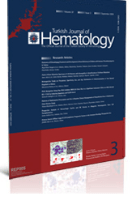
Turkish Journal of Hematology
Pioneering insights into blood disorders and treatments.Turkish Journal of Hematology is an esteemed publication dedicated to advancing the field of hematology, producing influential research since its inception in 1999 under the auspices of GALENOS PUBL HOUSE. With an Open Access model, it facilitates widespread dissemination of knowledge, allowing researchers, clinicians, and students to stay abreast of the latest developments in blood disorders and treatments. With an ISSN of 1300-7777 and an E-ISSN of 1308-5263, the journal holds a commendable position in the academic community, evidenced by its 2023 Q3 ranking within the hematology category and its standing at #80 out of 137 in the Scopus database, placing it in the 41st percentile. Covering a wide scope of topics within hematology, this journal serves as a critical resource for disseminating innovative research and clinical practices pertinent to the ongoing challenges faced in this vital area of medicine. With its continuous publication until 2024, Turkish Journal of Hematology remains a beacon for enhancing the understanding and treatment of hematological conditions within the Turkish and global medical communities.
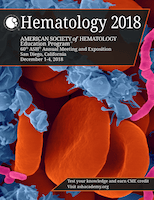
Hematology-American Society of Hematology Education Program
Transforming Hematology through Comprehensive LearningHematology-American Society of Hematology Education Program is a premier peer-reviewed journal dedicated to advancing the field of hematology through comprehensive educational content. Published by the American Society of Hematology, this journal plays a crucial role in disseminating knowledge to researchers, clinicians, and students in hematology and related disciplines. With an impressive Q1 status in the field, it ranks among the top journals at the forefront of hematological research, as evidenced by its 60th percentile ranking in Scopus' Medicine - Hematology category. Although it does not offer open access, the journal provides invaluable insights and educational resources from leading experts, focusing on the latest advancements, treatment protocols, and evolving understanding of blood disorders. Covering a wide range of topics, from basic research to clinical applications, this journal is essential for anyone seeking to deepen their expertise and stay informed on the latest developments in hematology. For further engagement, readers can access insightful articles published since 2001, ensuring a rich repository of knowledge for ongoing research and clinical excellence.

Hematologie
Connecting Researchers and Clinicians in HematologyHematologie is a highly regarded journal in the field of hematology, published by JOHN LIBBEY EUROTEXT LTD. With an ISSN of 1264-7527 and an E-ISSN of 1950-6368, this journal has established itself as a vital resource for researchers, clinicians, and students dedicated to advancing the understanding of blood disorders and treatments. Although the journal's coverage in Scopus was discontinued in 2018, it has continually provided invaluable insights and research findings. The journal aims to foster knowledge sharing and discussion in hematology, exploring innovative methodologies and emerging trends in the field. With a commitment to quality research, Hematologie remains an essential platform for disseminating critical findings that can drive clinical practice and influence future studies in hematological sciences.

BLOOD REVIEWS
Elevating knowledge in blood disorders and cancer care.BLOOD REVIEWS is a highly regarded journal published by Churchill Livingstone, specializing in the fields of Hematology and Oncology. With an impressive Q1 ranking in both disciplines and placing in the top 10% of its peer categories according to Scopus metrics, it provides an essential platform for the dissemination of cutting-edge research and reviews pertaining to blood disorders and cancer treatment. Since its inception in 1987 and continuing through 2024, the journal has established itself as a cornerstone for healthcare professionals, researchers, and students who seek to advance their understanding of hematologic and oncologic topics. While not an open-access journal, BLOOD REVIEWS retains a reputation for delivering high-quality, peer-reviewed articles that foster dialogue and innovation within the scientific community. For those in the United States and beyond, the journal serves as a vital resource, housed at the Journal Production Department in Edinburgh, Scotland, ensuring accessibility and a global reach in its critical academic contributions.
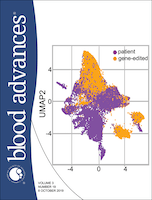
Blood Advances
Connecting Research and Practice in Blood ScienceBlood Advances is a premier, peer-reviewed journal published by Elsevier, dedicated to the field of hematology. With an impressive impact factor and classified within the Q1 category of hematology for 2023, it ranks as the 16th out of 137 journals in the Scopus Medicine Hematology category, placing it in the top 88th percentile globally. This influential journal, which has been disseminating invaluable research since its inception in 2017, focuses on advancing knowledge and innovation in blood science, including clinical and laboratory aspects of hematology. Although it offers limited open access features, its comprehensive scope encompasses various topics relevant to both researchers and practitioners. Located in the United States and managed from Amsterdam, Blood Advances provides a vital platform for the dissemination of groundbreaking research, making significant contributions to the understanding and treatment of blood disorders. Researchers, professionals, and students alike will find this journal an essential resource for keeping abreast of the latest developments and advancements in hematology.